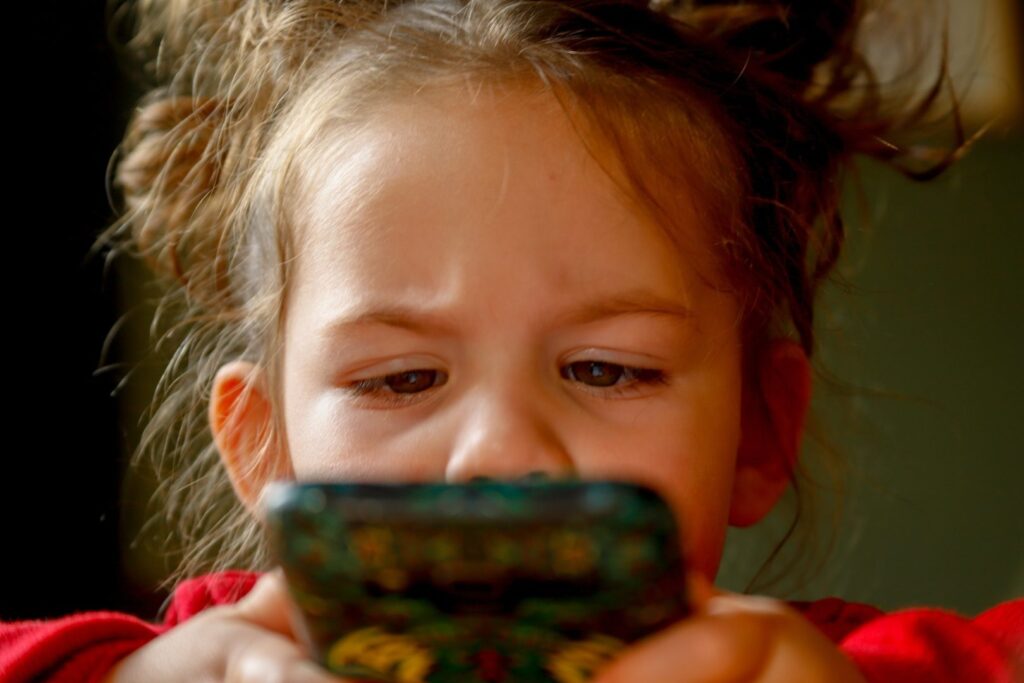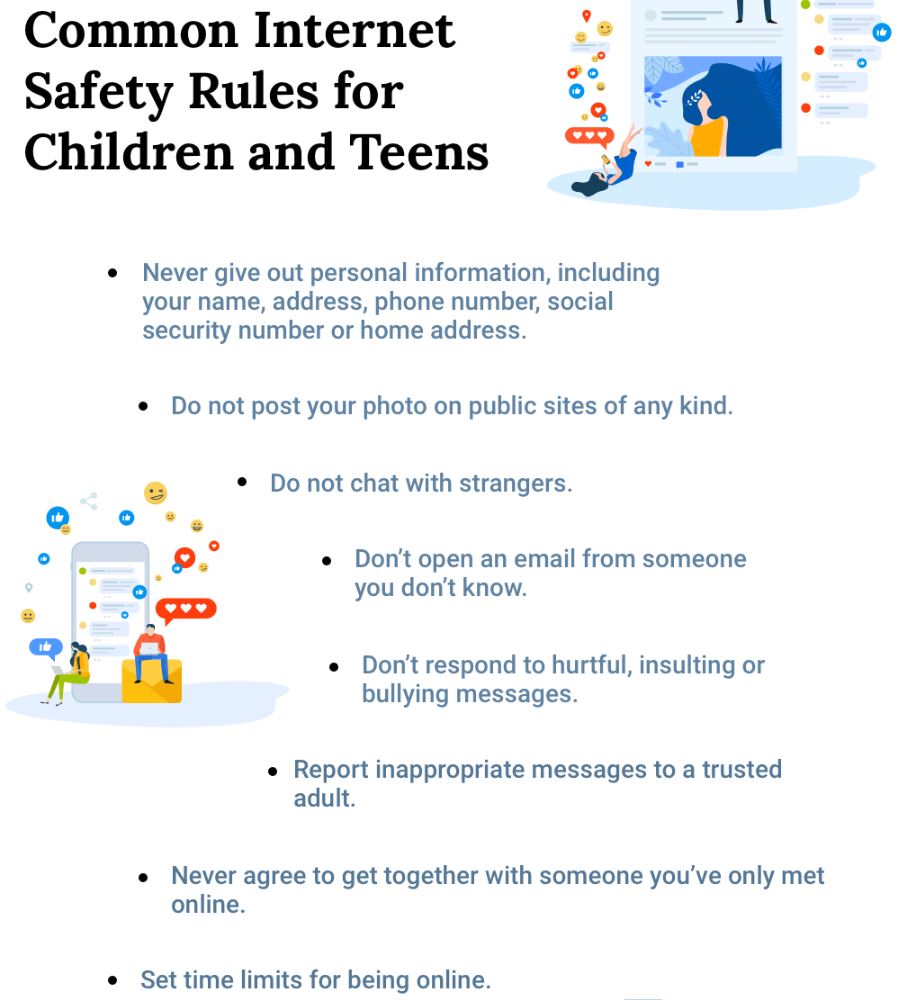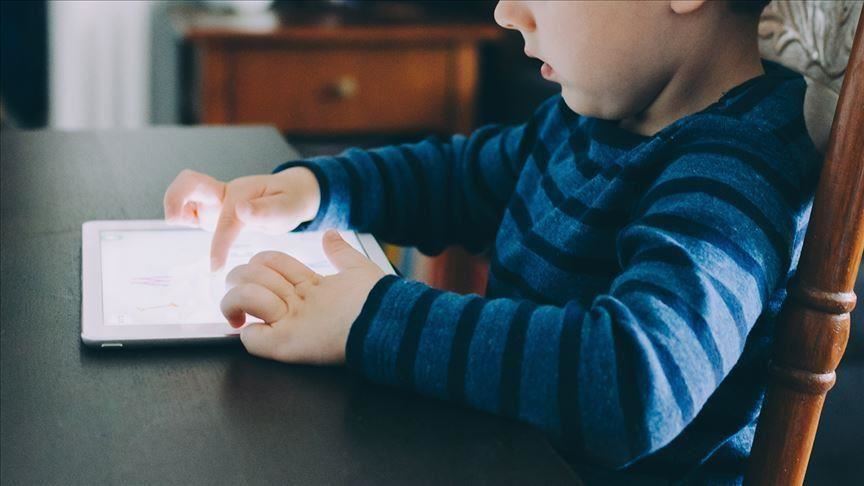Looking back on my childhood, living was peaceful and less demanding. As students, we struggled to learn without help for hours.
But we were also outside playing and socializing with other kids, went to school alone, stayed home alone, and didn’t even lock our doors.
Time has changed for everyone these days. Now we take our kids to school, learning courses, sports, music, and dancing classes, and wait for them.
We buy doors with several locks, put heavy passwords on every account and put pins on our smartphones. We live in a locked world, and despite that, we still don’t feel safe.
The Impact of Tech on Children’s Lives

Technology has an enormous impact on our lives. We develop our wants and needs according to tech.
It’s crucial for achieving our targets. Most professions even provide remote working opportunities and offices are filled with tech gadgets. Schools also constantly use tech for homework and studying.
Our kids use tech devices every day as well. Despite our efforts to use tech with a purpose, our kids tend to abuse our trust and use tech for as long as they want.
How to Teach Kids About Online Privacy
Parents can’t allow their kids to use tech devices without protection. Children use social media, websites, and apps and must know that being online needs safety measures.
When your kid decides to go online, we must discuss and debate potential risks and how to avoid them. Proper online behavior that you should teach your children includes:
- Do not share personal information, identity, passwords, phone number, addresses, or your family member’s identity;
- Don’t share pictures with strangers;
- Don’t accept strangers’ friend requests;
- Inform parents about an inappropriate comment, content, or message;
- Never agree with someone’s invitation to meet offline;
- Recognize suspicious behavior and report it;
- Always trusts your parents and be honest;
Risks of Sharing Personal Information Online for Children
Sharing personal information is devastating for our kids offline and online. Potential risks include:
- Sharing info about location can attract hackers and stalkers to locate our kids’ movement;
- Sharing identity information can attract hackers to go into our kids’ accounts and steal their info;
- A public social media profile attracts scams, fraudsters, cyber bullies, and predators to get close to our kids;
- Scammers can use children to manipulate them into sending money from your credit cards;
All in all, the digital world offers countless dangerous experiences and strange behaviors that can harm your children.
Online Predators

Online predators are so widespread and dangerous that they deserve a few paragraphs explaining why children should avoid them. They attack and blackmail kids online by using their personal information to hurt them mentally.
They will start with a friendly and polite attitude to get attention from the kid and get to know them. They are intelligent enough to get into kids’ brains and fish out all the information about family members, relations, and weaknesses.
They even try to empathize with children. Once they convince the kid to do whatever they intend to, kids become victims of that abuse.
Kids suffer because their childhood is ruined and their future scarred. Studies show that 20% of children have encountered an online predator.
Monitoring Online Activities
The first step in helping children save themselves from the dangers of tech is to monitor their online presence.
Parents should have some control over their children’s social media accounts and the apps they use. When your kid is setting up an online profile, make sure to know their password and keep the profile private.
Check whether they use friendly apps with appropriate or violent content. Parents must also approve and control video games that kids play with other users.
Educating Children About The Importance of Online Privacy Practices

Parents can’t just inform kids about the potential risks of sharing personal information. You should also educate children on ways to lower the chances of experiencing online dangers, such as:
- Creating strong yet memorable passwords;
- How to recognize and report inappropriate behavior;
- Accept friend requests only from people they know offline;
- Participate in groups only with friends and people they know;
- Don’t comment or like inappropriate content;
- Don’t argue with other users;
- Don’t expose your personality and privacy to others;
Parental Control Software
Monitoring our kids’ offline activities is not enough, and because of that fact, we parents can provide parental control software that can protect our kids.
We can download these apps for every kid’s activity on the net (social media, playing video games, using apps, surfing websites). We can monitor and control our kids easily with just a click on our phones.
We can use options to block, report, and restrict unwanted users, apps, and websites. The best parental control apps you can try are:
Resources for Parents and Kids’ Education on Online Safety

Technology engineering is a science that includes every aspect of our lives. It’s the only source of answers and information.
With just a little research, you can find out there are plenty of resources for parents and kids’ education about online safety, such as:
But the best resource for children to learn about online safety is you. Parents are the ones that need to guide children into the rocky world of tech.
Conclusion
To be active in the digital world demands rules that our kids need to respect to stay safe. Parents must provide proper education, inform, monitor, and use parental control apps to protect their kids.
Be a safe user, and keep your information to yourself. Protect your identity!
After all, having a secure digital presence is like living in a country where crime isn’t a thing.
FAQ
What are the risks of sharing personal information online for kids?
Kids can suffer from identity theft, information abuse, bullying, scams, hackers, and blackmail if they share their personal information online.
Firstly you need to inform yourself about the platform your child is using. Then, monitor their presence and use parental control apps to limit their screen time and online activities.
Are there any online privacy laws that protect children?
What are some age-appropriate online safety guidelines for kids?
Here are some guidelines you can have your kids follow:
- Keep your password safe and sound.
- Keep selfies in your phone gallery, and don’t post them on the net.
- Don’t share your personal information (name, phone number, address, school you go to, family members).
- Make friends online, and not enemies.
- Avoid talking to strangers.
- Report inappropriate behavior, content, and comment.
- Spend more time with family and friends.
ALSO READ: What is The Role of Technology in Children’s Lives







